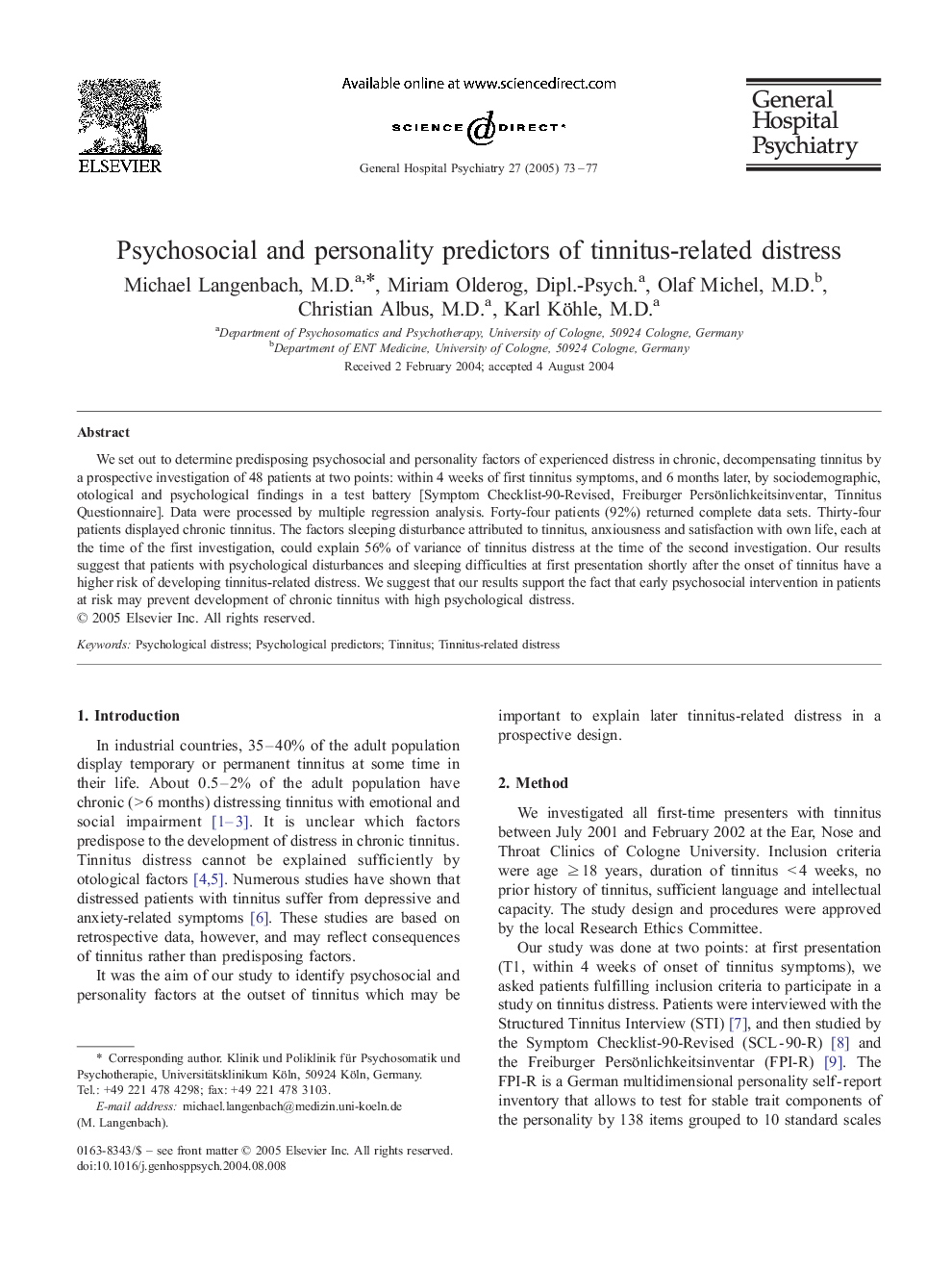| Article ID | Journal | Published Year | Pages | File Type |
|---|---|---|---|---|
| 9233640 | General Hospital Psychiatry | 2005 | 5 Pages |
Abstract
We set out to determine predisposing psychosocial and personality factors of experienced distress in chronic, decompensating tinnitus by a prospective investigation of 48 patients at two points: within 4 weeks of first tinnitus symptoms, and 6 months later, by sociodemographic, otological and psychological findings in a test battery [Symptom Checklist-90-Revised, Freiburger Persönlichkeitsinventar, Tinnitus Questionnaire]. Data were processed by multiple regression analysis. Forty-four patients (92%) returned complete data sets. Thirty-four patients displayed chronic tinnitus. The factors sleeping disturbance attributed to tinnitus, anxiousness and satisfaction with own life, each at the time of the first investigation, could explain 56% of variance of tinnitus distress at the time of the second investigation. Our results suggest that patients with psychological disturbances and sleeping difficulties at first presentation shortly after the onset of tinnitus have a higher risk of developing tinnitus-related distress. We suggest that our results support the fact that early psychosocial intervention in patients at risk may prevent development of chronic tinnitus with high psychological distress.
Related Topics
Health Sciences
Medicine and Dentistry
Emergency Medicine
Authors
Michael M.D., Miriam Dipl.-Psych., Olaf M.D., Christian M.D., Karl M.D.,
